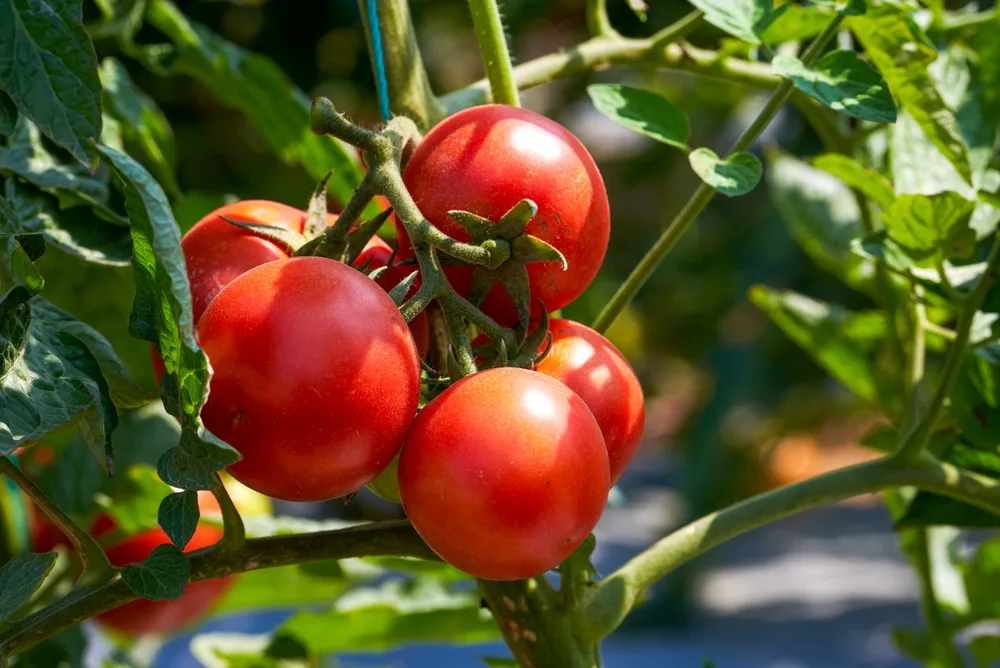In agriculture’s realm, the attraction of natural remedies often exceeds synthetic options. Amid this pursuit, a straightforward yet powerful blend has captured the interest of farmers and gardeners: half a bucket of fresh water and manure.
This organic fertilizer has emerged as a transformative force for tomato cultivation, providing a sustainable and efficient method to nurture plants and enhance yields. Let’s explore the formulation and advantages of this remarkable concoction.

Recipe:
Fresh Manure Gathering: Start by acquiring half a bucket of manure from herbivorous animals like cows, horses, or goats. Using fresh manure is essential for its nutrient richness and microbial activity.
Water Mixing: Place the fresh manure in a sizable bucket and immerse it in water. While the manure-to-water ratio may vary, a common practice is to fully cover the manure with water.
Fermentation Allowance: Permit the mixture to steep for several days, occasionally stirring to aid in organic matter breakdown and nutrient release. Throughout this fermentation period, microbial activity will intensify, enriching the solution with beneficial bacteria and nutrients.
Dilution and Strain: Once the liquid adopts a deep, earthy hue and emits a rich aroma, it is ripe for use as fertilizer. Filter the mixture to remove solid residues, and dilute the liquid with water to achieve the desired strength.
Application: Thoroughly water tomato plants with the diluted fertilizer, ensuring comprehensive root nourishment. Repeat this regimen every few weeks during the growing season to sustain robust growth and optimize yields.
Benefits:
Nutrient Enrichment: Fresh manure serves as a robust reservoir of essential nutrients such as nitrogen, phosphorus, and potassium, crucial for plant vitality. By steeping it in water, these nutrients are leached into the solution, providing tomatoes with the requisite nourishment for flourishing.
Microbial Boost: The fermentation process fosters microbial proliferation within the fertilizer, enriching it with beneficial bacteria and fungi. These microorganisms play a pivotal role in soil vitality, facilitating nutrient recycling, enhancing soil structure, and fortifying plant resilience to stress.
Soil Enhancement: In contrast to synthetic fertilizers, which may degrade soil quality over time, natural fertilizers like fresh manure bolster soil health by augmenting organic matter and fostering microbial diversity. This engenders enhanced soil structure, moisture retention, and nutrient accessibility, fostering an optimal milieu for tomato cultivation.
Sustainability: The utilization of organic materials like fresh manure as fertilizer epitomizes a sustainable agricultural ethos. By repurposing byproducts from livestock husbandry, farmers can mitigate environmental impact and advocate for a more circular and regenerative agricultural paradigm.
Cost Efficiency: Half a bucket of fresh water and manure presents a cost-effective alternative to commercial fertilizers. It demands minimal investment and utilizes readily accessible materials, rendering it accessible to farmers across diverse scales.
This natural fertilizer for tomatoes underscores the efficacy of harnessing nature’s bounty to nourish crops and advocate for sustainable agriculture. As we endeavor toward an environmentally conscious and resilient food system, embracing straightforward yet potent solutions like this can pave the way for a bountiful and wholesome harvest.
